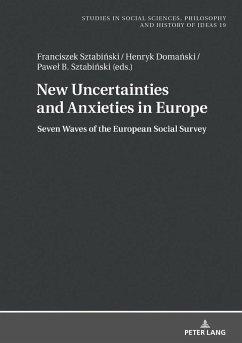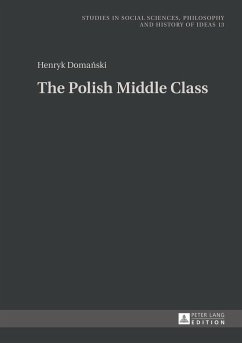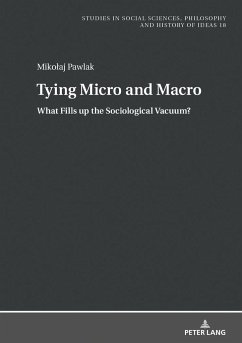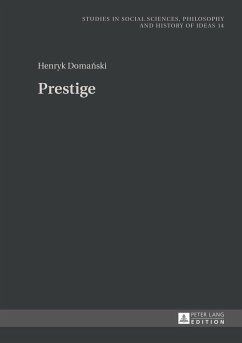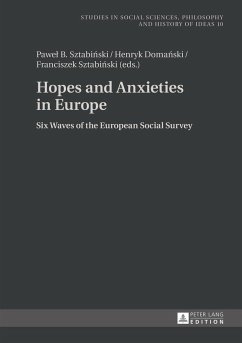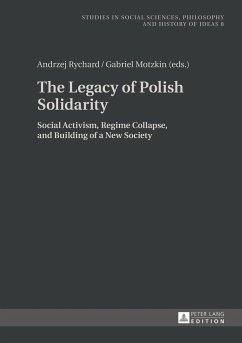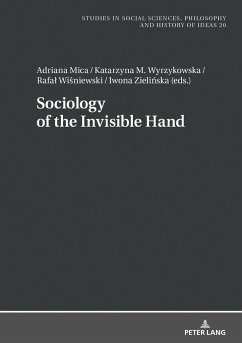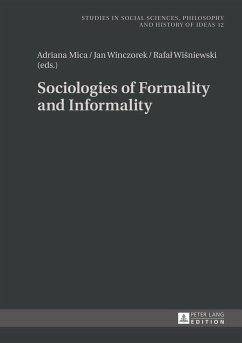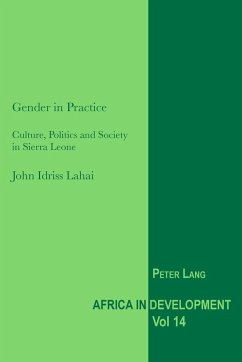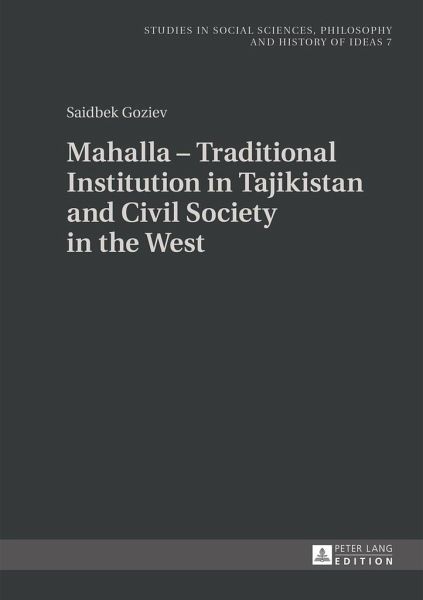
Mahalla - Traditional Institution in Tajikistan and Civil Society in the West
Versandkostenfrei!
Versandfertig in 6-10 Tagen
53,95 €
inkl. MwSt.

PAYBACK Punkte
0 °P sammeln!
The guiding theme of the book is a traditional institution of Tajik culture: mahalla - neighborhood. For centuries it has sustained the existence of Tajik culture, and in times of the greatest religious persecution in the USSR it has helped Islam to survive. In this book the author does not limit himself to the description of mahalla and the explanation of its social functions; a significant part of the book is constituted by a comparison of mahalla with the concept of civil society existing in contemporary Western culture. For this reason, the book examines differences between Eastern and Wes...
The guiding theme of the book is a traditional institution of Tajik culture: mahalla - neighborhood. For centuries it has sustained the existence of Tajik culture, and in times of the greatest religious persecution in the USSR it has helped Islam to survive. In this book the author does not limit himself to the description of mahalla and the explanation of its social functions; a significant part of the book is constituted by a comparison of mahalla with the concept of civil society existing in contemporary Western culture. For this reason, the book examines differences between Eastern and Western cultures, in which the specificity of the first is collectivism, and the second individualism. The author's considerations are based on two pillars: firstly, he has great knowledge on theoretical literature and field studies while secondly an important role has been played by the fact that he has spent a large part of his life as a resident of mahalla in Tajikistan before beginning his studies in the West. This very fact has allowed him to meet Western civil society as an observer. Precisely, the experience of living in these different societies permits the author to formulate his own opinions and conclusions, sometimes surprising to the reader.





